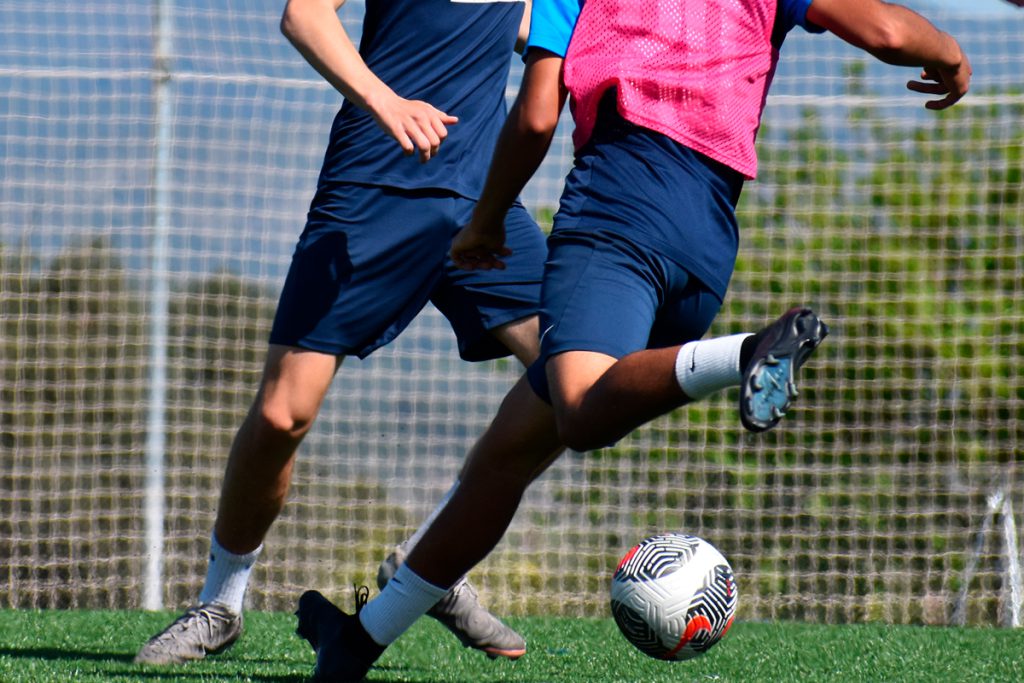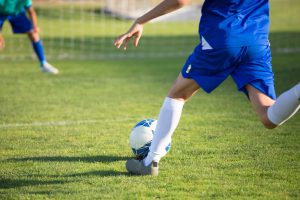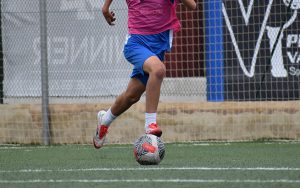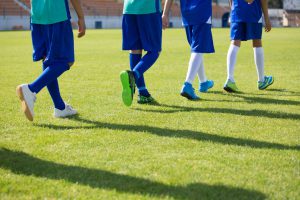What to eat before and after a soccer game is a question every serious player should be asking. Fueling your body with the right food isn’t just about having energy—it’s about improving performance, reducing the risk of injury, and speeding up recovery so you can train again sooner.
The truth is, top players don’t guess what to eat. Their nutrition plans are strategic, balanced, and built to match the physical demands of the game. If you’ve ever trained in a high-performance football camps, you’ll know that diet is treated as seriously as tactics.
Let’s dive into exactly what to eat before kick-off and after the final whistle to fuel your football journey the right way.
Table of Contents
Why Nutrition Matters on Game Day
Your body is your engine. What you put in determines how well it runs.
✅ Before a match, the goal is to top up energy stores, stay hydrated, and feel light—not sluggish.
✅ After the match, the focus shifts to muscle repair, rehydration, and replenishing nutrients lost during the game.
Ignore your nutrition, and you’ll feel it in your legs—and in your performance.
What to Eat Before a Soccer Game
Timing is key. You want to eat your main pre-game meal 2.5 to 3 hours before kickoff. Then, if needed, have a light snack 30–45 minutes before.
🥗 Main Pre-Game Meal (3 hours before)
Focus on:
- Complex carbs – for long-lasting energy
- Moderate protein – for muscle support
- Low fat and low fiber – to avoid stomach discomfort
Great meal examples:
- Grilled chicken with rice and steamed veggies
- Whole grain pasta with light tomato sauce
- Turkey sandwich on whole grain bread with a banana
Stay away from greasy, heavy meals—they slow digestion and sap your energy.
🍌 Small Snack (30–45 mins before)
When you’re closer to game time, keep it light and high in quick-digesting carbs.
Easy snack ideas:
- Banana or apple with a spoon of peanut butter
- Granola bar (low fiber)
- Slice of toast with honey
- Rice cakes with jam
And don’t forget hydration—start sipping water or an electrolyte drink early in the day.
What to Drink Before the Game
🚰 Hydration starts hours before kickoff.
Aim for:
- 16–20 oz (500–600ml) of water 2–3 hours before game
- A few sips every 15–20 minutes leading up to the match
- Electrolyte drinks if it’s hot or you tend to sweat a lot
Avoid:
❌ Energy drinks
❌ High-sugar sodas
❌ Excessive caffeine
What to Eat After a Soccer Game
Once the final whistle blows, your body is in recovery mode. You’ve lost fluids, burned through glycogen (stored energy), and broken down muscle fibers. The quicker you refuel, the faster you’ll bounce back.
🥤 First 30 Minutes: Quick Recovery Snack
Right after the game, aim to get:
- Carbs – to refill energy stores
- Protein – to start repairing muscles
- Fluids – to rehydrate
Best quick snacks:
- Protein shake with banana
- Chocolate milk (yes, really—it’s a top recovery drink!)
- Greek yogurt with fruit
- Smoothie with protein powder and berries
🍽️ Full Meal (1–2 hours later)
Now it’s time to eat a proper meal. Prioritize:
- High-quality carbs – rice, pasta, quinoa, potatoes
- Lean protein – chicken, fish, tofu, eggs
- Healthy fats – olive oil, avocado, nuts
- Hydrating veggies – cucumber, spinach, bell peppers
Sample post-game plate:
- Grilled salmon with sweet potato and a spinach salad
- Chicken stir-fry with brown rice and mixed vegetables
- Omelet with whole grain toast and a fruit smoothie
Continue drinking water and consider a sports drink if you lost a lot of sweat.
What to Avoid Before and After Playing
Some foods and habits can cancel out the hard work you’ve put in on the field.
❌ Before the match:
- Heavy sauces or fried foods
- Sugary energy drinks
- Big meals right before kickoff
❌ After the match:
- Skipping meals (even if you’re tired)
- Fast food—low nutrition, poor recovery
- Too much sugar with no protein
Remember, food is fuel. Treat it like part of your training.
Supplements—Yes or No?
Most young players don’t need supplements if they’re eating well. But in some cases, these may help:
✅ Protein powder – useful for recovery shakes
✅ Creatine – only if recommended by a coach/nutritionist
✅ Electrolyte tablets – for hydration during hot weather
Always consult a professional before adding supplements to your routine.
Eat Like an Athlete, Play Like One
Knowing what to eat before and after a soccer game isn’t about following trends—it’s about understanding your body and giving it what it needs to perform and recover.
Fueling up right can be the edge that gets you to the ball first, helps you make that sprint in the 89th minute, or lets you show up stronger for training the next day.
Whether you’re playing at the grassroots level or preparing for trials, treating your nutrition like part of your game plan puts you a step ahead. In fact, within advanced development environments, eating well is considered just as important as passing or pressing drills.
Eat smart. Recover strong. Your body will thank you—and so will your game. ⚽🥗




